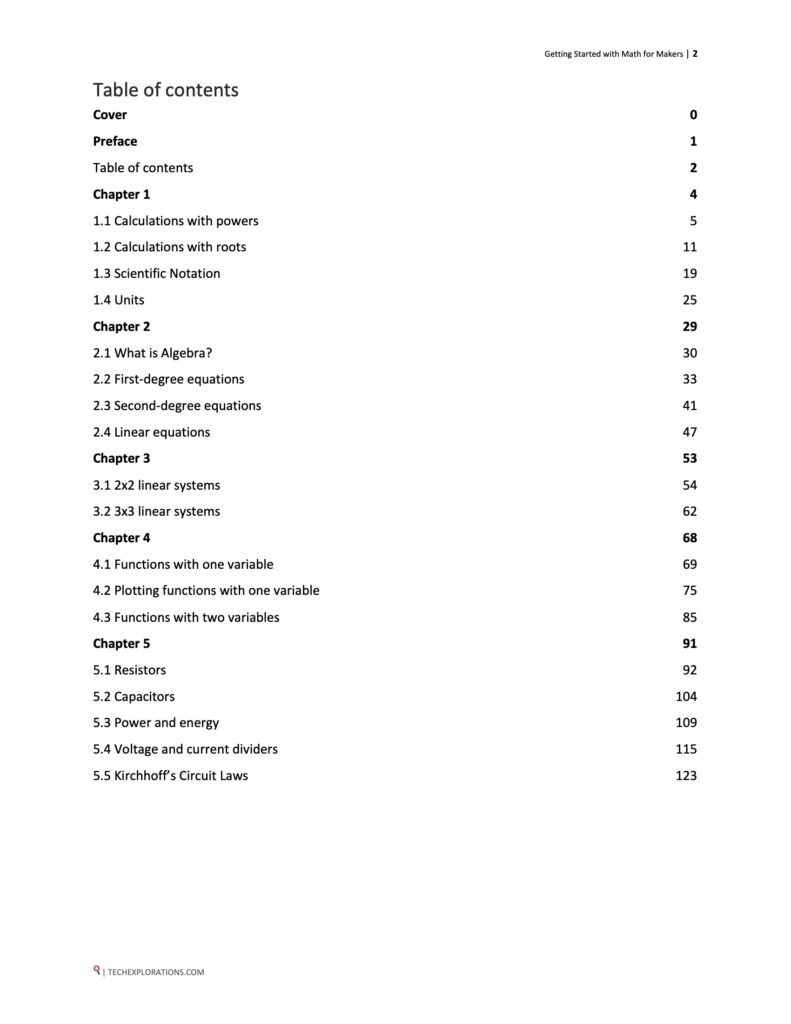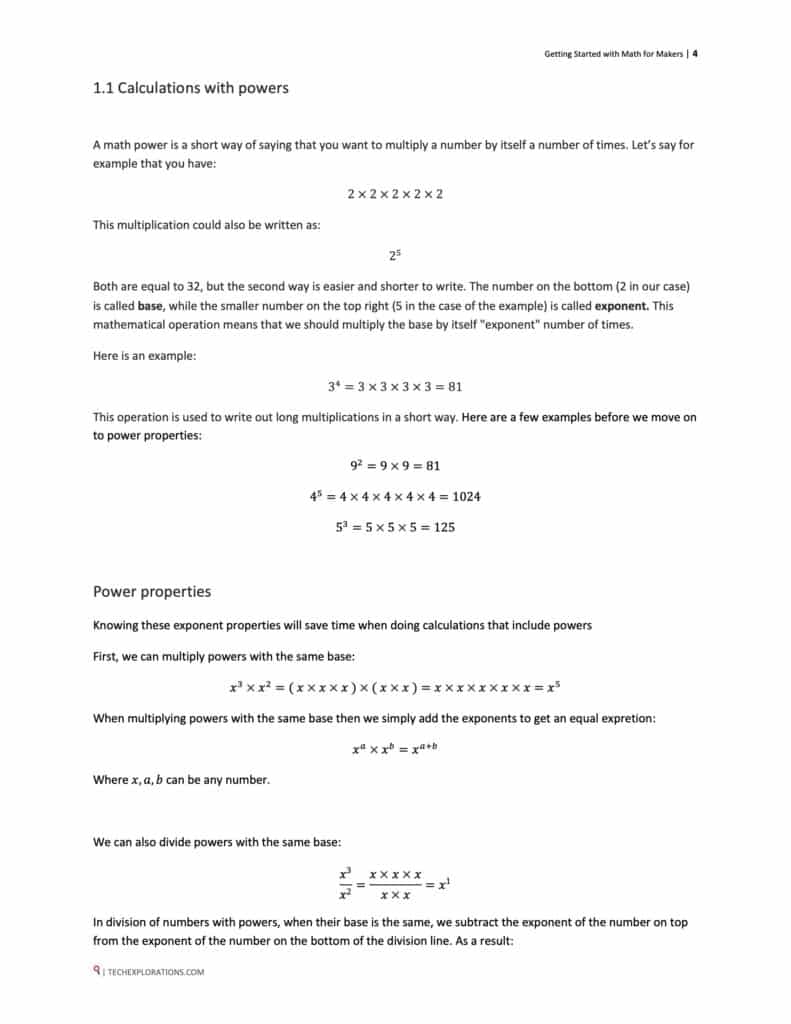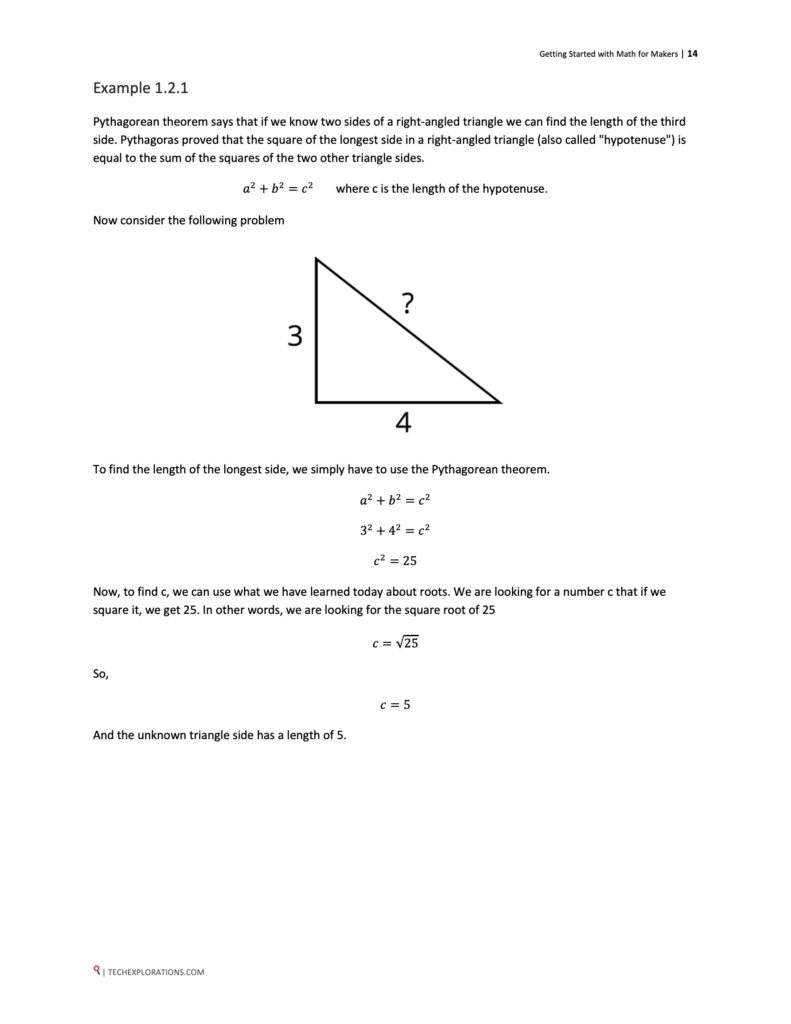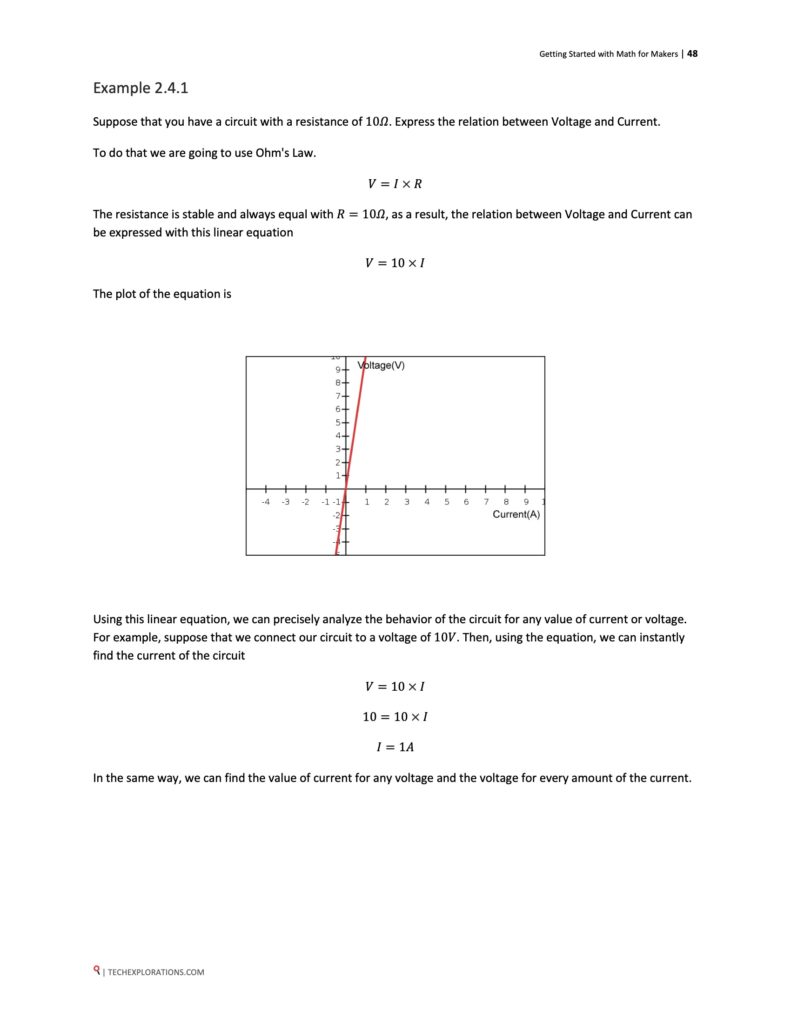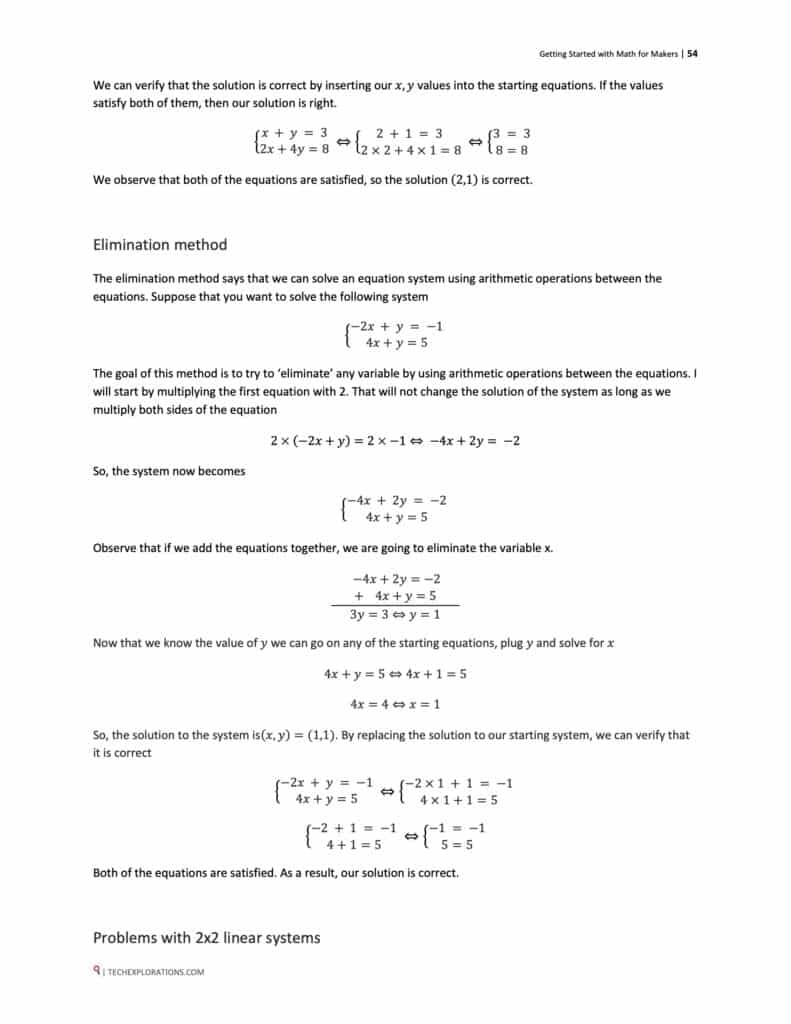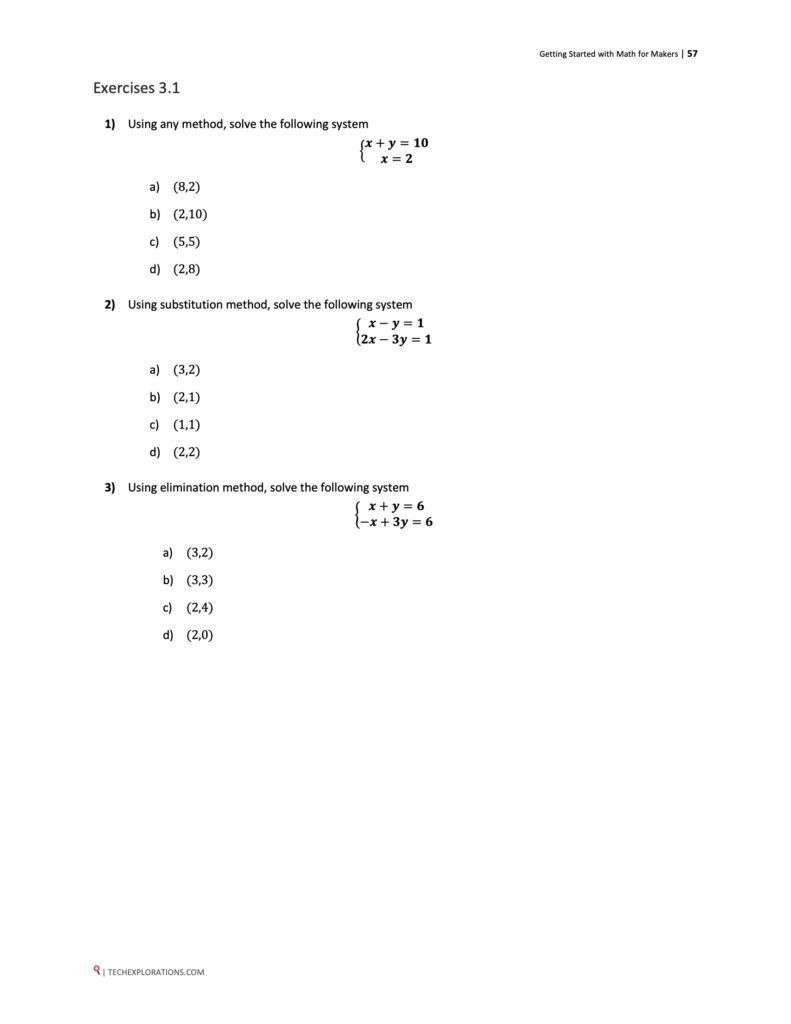
Basic mathematics
for
electronics
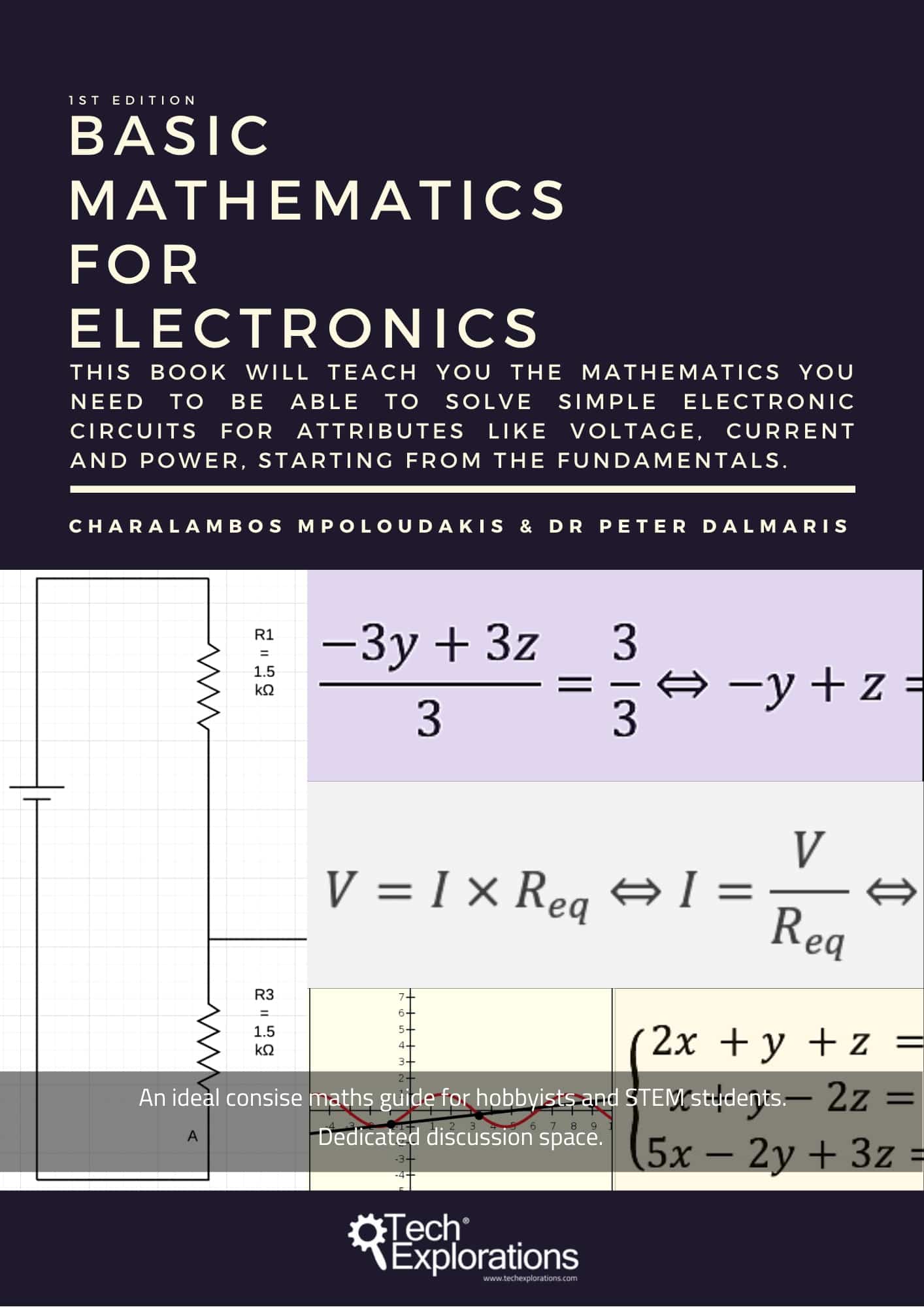
Learn the mathematics you need to be able to solve simple electronic circuits for attributes like voltage, current and power.
Even if you haven't solved a single equation since high-school, this book will help you learn (or re-learn) exactly the mathematics you need to be able to comfortably calculate the main attributes of simple (and more complicated) linear circuits.
This skill is vital for anyone wanting to really understand what is going on in a circuit.
Even with the availability of online circuit calculators and desktop simulators, a basic understanding of the mathematics behind the electronics will help you become a better maker.
We wrote this book specifically for people that are working with simple electronic circuits such as those that you find in Arduino projects.
You may be a current STEM student.
Perhaps you haven't done a single algebra calculation since high-school, decades ago.
That's OK.
We wrote this book as a practical guide. It contains just enough theory to help you understand, and lots of examples to help you practice.
The examples are based on circuits and cases that Arduino makers have to deal with all the time: voltage dividers, power and energy calculations, voltage drop and current calculations.
We start with the fundamentals. We explain how to work with powers, calculate roots, use the scientific notation.
Then, we dive into Algebra. You will learn about first and second-degree equations and linear equations.
We continue with 2x2 and 3x3 systems (great for solving simple circuits) and then get into one and two-variable functions and plots.
We leave the best for last, where you learn how to use all the mathematics you learned to work with resistors, capacitors, voltage dividers, calculate power and energy, and of course, practical use cases of Kirchhoff's Laws.
This eBook will help you:
- Learn how to do the calculations needed to solve equations that describe electronic circuits.
- Get up-to-speed with Algebra.
- Learn how to solve 1st, 2nd degree and linear equations.
- Learn how to solve 2x2 and 3x3 systems of equations.
- Learn how to solve and plot functions with one or two variables.
- Apply this knowledge to circuits that contain resistors and capacitors to calculate voltage, current, energy and power.
Table of contents
Chapter 1
1.1 Calculations with powers
1.2 Calculations with roots
1.3 Scientific Notation
1.4 Units
Chapter 2
2.1 What is Algebra?
2.2 First-degree equations
2.3 Second-degree equations
2.4 Linear equations
Chapter 3
3.1 2x2 linear systems
3.2 3x3 linear systems
Chapter 4
4.1 Functions with one variable
4.2 Plotting functions with one variable
4.3 Functions with two variables
Chapter 5
5.1 Resistors
5.2 Capacitors
5.3 Power and energy
5.4 Voltage and current dividers
5.5 Kirchhoff’s Circuit Laws
Here's what you are getting:
Which option is best for you?
You can enroll to our courses in one of three options: Solo, Community, and Mentor. For more information, please see this explainer page.
Solo
Once-off payment, best for self-sufficient learners on a budget.
...
Once-off.
...
Once-off.
Community
Best for the social learner: be a member of the course community.
...
Once-off.
...
Once off.
Mentor
Get one-on-one live meetings with a mentor, learn to master.
US$299
US$299
This button will take you to Stripe, our payments processor.
The author of this eBook
The book is written by Charalampos Boloudakis and Peter Dalmaris, PhD.
Peter has created over 20 other courses on technology education.
He is the author of Maker Education Revolution, a book on how making is changing the way we learn and teach.
He is also the host of Stemiverse, a podcast in which he discusses education and STEM with the shakers and movers of technology and science education from around the world.
Babis is a Software Engineer based in Athens, Greece.
He holds a Bachelor degree in Computer Science, specializing in Software Development and Data Science.
He is particularly interested in topics related to Artificial Intelligence, Algorithms and Mathematics.
Copyright 2025, Tech Explorations - Privacy
